Arsas by Ahmed Al Hamdan… Do you know what’s worse than death? It’s the truth waiting inside. The novel revolves around a strange object discovered in the sky. The secret research department in Saudi Arabia works to address the matter and sends a team to explore this strange object, but many, many surprises await them.
Arsas
د.ا7.00
The novel delves into a dark world of mystery and horror, where myths intertwine with reality in an exciting and surprising narrative.
Available on backorder
| Categories: | Science Fiction and Fantasia, Literature, Novels, stories, Horror literature, Myth |
|---|---|
| Tags: | Fiction, Horror, Novels, philosophy |
| Author | |
|---|---|
| Year | |
| Publisher | Arabic Literature Publishing Center |
You may also like…
-
Bring Me Back to You
د.ا9.00“Bring Me Back to You” by Ahmed Al Hamdan is a literary text that combines spiritual contemplations and emotional longing in a delicate, poetic style.
-
Ababil Part Two Al-Jassasah
د.ا9.00A novel that explores worlds of mystery and horror with a captivating narrative style that blends fantasy with philosophical contemplation.
-
Ababil
د.ا12.00“Ababil” takes place in a magical fantasy world, blending love, conflict, and myth within a thrilling dramatic framework.
-
Ababil Part Three Jumana with the Hazel Eyes
د.ا9.00A novel that tells a mysterious love story that weaves together reality and fantasy in a poetic and captivating style.
Related products
-
The Forty Rules of Love
د.ا10.65is a novel written by the Turkish author Elif Shafak,[1][2][3] Her interest in writing this book was influenced by the degree she received in Gender and Women’s Studies.[4] The book was published in March 2009.[5] It is about the Persian mystic poet Maulana Jalal-Ud-Din, known as Rumi and his companion Shams Tabrizi.[6][7] This book explains how Shams transformed a scholar into a Sufi (mystic) through love.[8] More than 750,000 copies of this book were sold in Turkey and France
د.ا12.78 -
Flower swordsman
د.ا7.10The Swordsman of Flowers is a collection of prose texts that combines irony and sadness and expresses issues of freedom and human oppression
د.ا8.52 -
Pulse
د.ا12.00A novel that sheds light on the internal conflict between mind and heart, and addresses themes of love, sacrifice, and the search for self in a world filled with challenges.
-
The Alchemist
د.ا4.97The Alchemist (Portuguese: O Alquimista) is a novel by Brazilian author Paulo Coelho which was first published in 1988. Originally written in Portuguese, it became a widely translated international bestseller. The story follows the shepherd boy Santiago in his journey across North Africa to the Egyptian pyramids after he dreams of finding treasure there.
د.ا7.10 -
Palestinian resistance literature under occupation
د.ا3.55Ghassan Kanafani is a Palestinian novelist, storyteller, and journalist, and is considered one of the most famous Arab writers and journalists in the twentieth century. His literary works, including novels and short stories, were deeply rooted in Arab and Palestinian culture
د.ا4.97 -
Death bed number 12
د.ا3.55Ghassan Kanafani is a Palestinian novelist, storyteller, and journalist, and is considered one of the most famous Arab writers and journalists in the twentieth century. His literary works, including novels and short stories, were deeply rooted in Arab and Palestinian culture
د.ا4.97 -
The other thing
د.ا2.13Ghassan Kanafani is a Palestinian novelist, storyteller, and journalist, and is considered one of the most famous Arab writers and journalists in the twentieth century. His literary works, including novels and short stories, were deeply rooted in Arab and Palestinian culture
د.ا3.55 -
The Da Vinci Code
د.ا8.52- The Da Vinci Code is a 2003 mystery thriller novel by Dan Brown. It is Brown’s second novel to include the character Robert Langdon: the first was his 2000 novel Angels & Demons. The Da Vinci Code follows symbologist Langdon and cryptologist Sophie Neveu after a murder in the Louvre Museum in Paris entangles them in a dispute between the Priory of Sion and Opus Dei over the possibility of Jesus and Mary Magdalene having had a child together.
د.ا10.65





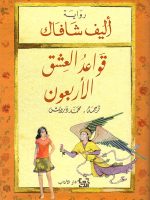
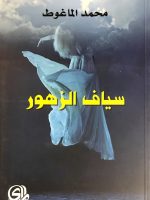
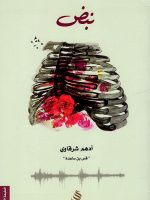
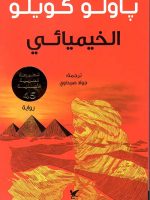

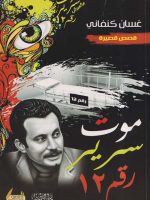

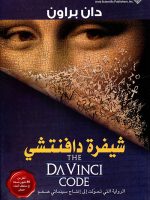
Be the first to review “Arsas”